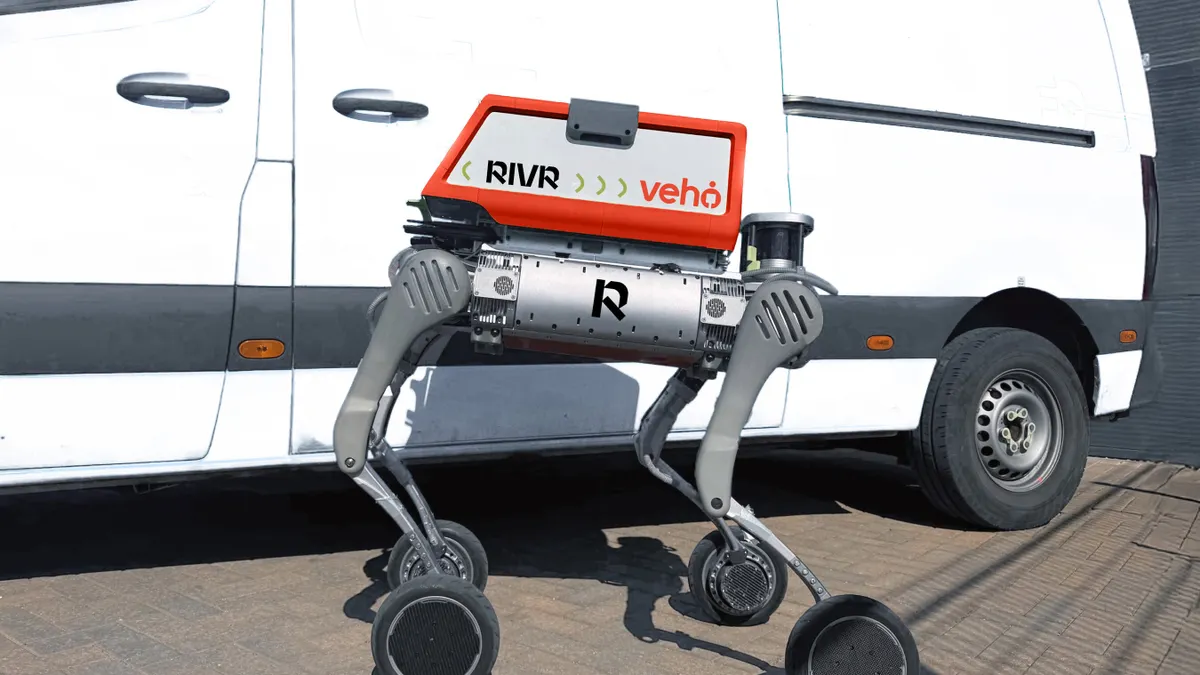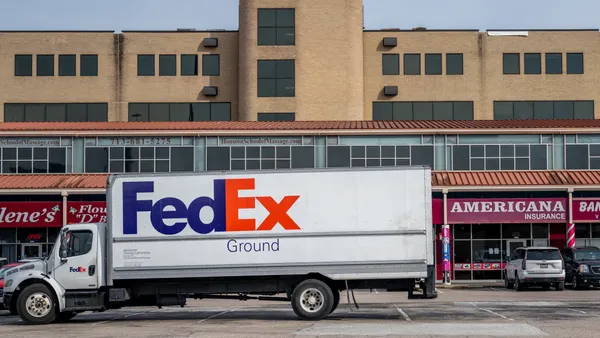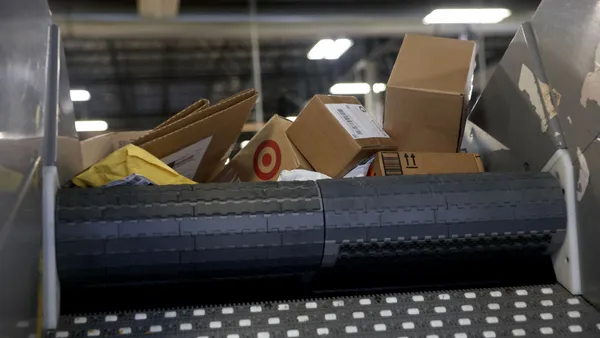Dive Brief:
- Parcel carrier Veho used a robot to assist with deliveries as part of a trial in Austin, Texas, according to a May 27 news release.
- As a human courier completed one dropoff, a robot from robotics firm RIVR shuttled other packages from the delivery vehicle to a separate destination nearby. A RIVR employee accompanied the robot during the trial for quality assurance.
- The trial wrapped up last Friday with 400 deliveries made over two weeks, and Veho and RIVR will look to launch more tests later this year, Fred Cook, Veho's chief technology officer, told Supply Chain Dive. "Texas likes robots, so we'll probably expand it to other cities in Texas," he said.
Dive Insight:
The Austin trial's goal was to collect as much data as possible, observe how customers respond, and test how Veho and RIVR’s systems work together, Cook said. Veho's ultimate aim with the collaboration is to learn if the human-robot combination can improve delivery reliability, speed and costs.
During the test, the robot completed about 95% of its deliveries successfully, according to Cook. Limited intervention was needed, save for instances of spotty internet connection or a delivery needing to traverse a recipient's lawn.
"Just in the interest of having a smooth experience with the customer, we had our human driver do those deliveries, but by and large, 95% for a first trial run [is] pretty good," Cook said.
Carriers beyond Veho have explored the potential of robots as parcel couriers before. However, they've largely focused on point-to-point delivery applications — like retail and restaurant pickups to homes — rather than ferrying packages from a delivery van to reduce a driver's workload.
"Unlike sidewalk robots, which are limited to curbside, attended deliveries with low throughput, RIVR's robot operates in parallel with human drivers and at a speed that makes dense, multi-drop delivery commercially viable," Veho said in its news release.
Implementing robots in this fashion can be particularly useful in locations with many deliveries to complete but limited parking, according to Veho. The RIVR robot's wheel-legged design helps it navigate common obstacles like stairs, gates and uneven terrain during its journey.
RIVR's robots aren't intended to become a replacement for humans, instead enabling couriers to deliver packages faster and with less physical strain, according to Veho. Cook noted the robot could handle a heavy meal kit while the driver delivers a one-pound polybag nearby.
"If we can make the human more productive, if we can reduce strain, give them fewer steps, especially fewer steps carrying heavy boxes around, that's a huge win for the drivers," Cook said.
For RIVR, the ongoing collaboration allows the company to work with a fast-growing carrier that can deploy their robots at scale. Veho delivers millions of packages monthly across 50 U.S. metro areas, serving retailers like Lululemon, Macy's, Saks and Sephora.
Frequent trial runs also align with RIVR's strategy to build its robots' real-world experience and give them more data to learn from. In addition to the Veho trial, the company's robots are also making deliveries in South Yorkshire, England, in collaboration with U.K. parcel delivery giant Evri.
Editor's note: This story was first published in our Logistics Weekly newsletter. Sign up here.















